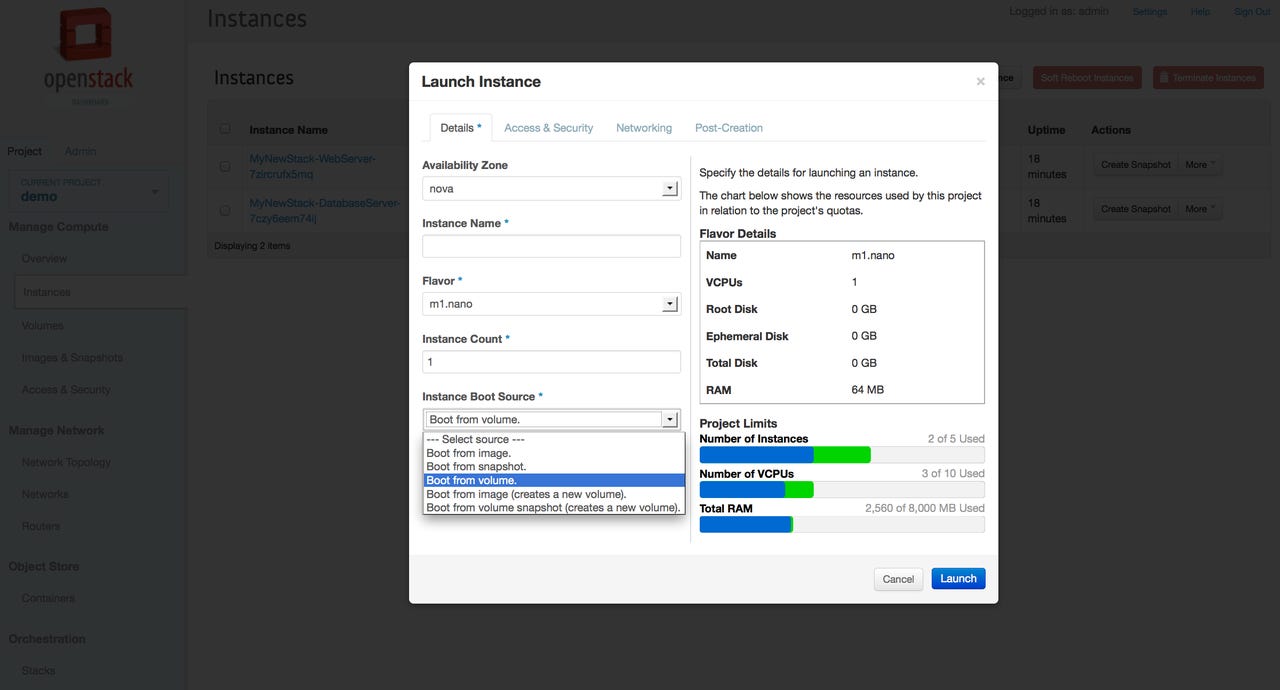OpenStack Havana: Open-source cloud for the enterprise

Businesses have taken to OpenStack, the open-source, Infrastructure-as-a-Service (IaaS) cloud, like ducks to water. Major companies such as PayPal, Intel, and WikiMedia, the group behind Wikipedia, are using OpenStack in their clouds. On October 17, OpenStack's Havana, the eighth release of this IaaS for public, private, and hybrid clouds, brings its enterprise customers several new improvements.

These enhancements include new services such as OpenStack Metering and OpenStack Orchestration. When combined with improvements to existing services, such as global clusters for Object Storage and Quality of Service (QoS) capabilities for Block Storage, these make OpenStack even better for organizations that are building or deploying applications on clouds. In short, Havana will give businesses the tools they need to start transforming OpenStack from being just an IaaS into being a Platform-as-a-Service (PaaS) or even a Software-as-a-Service (SaaS) cloud as well.
As Jonathan Bryce, the OpenStack Foundation's executive director, said in a statement, "If software development, managing data or running application infrastructure is strategic to your business, OpenStack is the platform that will accelerate time to value."
Featured
The Havana release comes with nearly 400 new features. The most important of these are OpenStack Orchestration and OpenStack Metering. These were incubated during the Grizzly release cycle and are now ready to run in production. In the real world, OpenStack sees these features playing out in the following ways:
Application Driven Capabilities: OpenStack Orchestration is a template driven service for describing and automating the deployment of compute, storage and networking resources for an application. The new global clusters feature for Object Storage enables you to cut costs and improve performance by replicating and delivering data around the world, and the new QoS capability across Block Storage drivers allows you to guarantee performance requirements for an application. Docker support was also added to speed application deployment using virtualization containers.
Improved Operational Experience: The Dashboard user interface (UI) has also been improved. OpenStack Metering now provides managers with a single source of usage data across OpenStack services for activities like enterprise chargebacks and feeding systems monitoring tools.
More Enterprise Features: OpenStack continues to mature and support enterprise driven features such as end-to-end encryption across all Block Storage drivers, Secure Socket Layer (SSL) support across all service application programming interfaces (APIs), new virtual private network (VPN) and Firewall-as-a-Service (FaaS) capabilities. All users will be happy to see better support for rolling upgrades and boot from volume, which provides the foundation for live migration. Last, but not least, popular storage and networking providers continue to improve and write new plug-ins for OpenStack, making it easier for enterprises to work with their trusted vendors and take advantage of existing infrastructure.
On the development side, Bryce said, "We’ve seen more users contribute directly to the Havana release than ever before. It means users are empowered and driving the direction of OpenStack based on their real world use cases and implementations."
By the numbers, the OpenStack community has grown to almost 1,000 contributors. This is a 60 percent increase from the Grizzly release six months ago. More than 145 OpenStack ecosystem members employ developers who contributed to this release, including Canonical, Dreamhost, eNovance, HP, IBM, Intel, Mirantis, Rackspace, Red Hat, SUSE, and Yahoo.
It's more than just programming prowess that these companies are giving OpenStack. Almost all of them are offering OpenStack in public, private, and hybrid cloud configurations. Look out Amazon Web Services (AWS), OpenStack wants to become the name brand of cloud computing.
Related Stories: